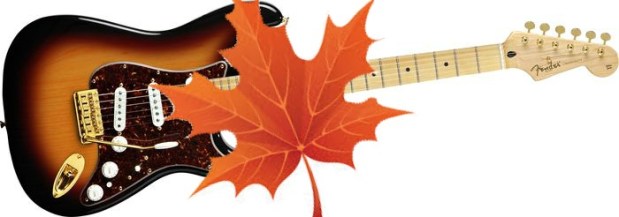GETTING MORE TALE #471: Canadian Rawk
What do you think of when you read the words “Canadian rock”? Perhaps you imagine the vocal shrieks and drum thrills of Rush? If you have a negative impression of Canadian music, no doubt your mind drifts to the sultry sounds of Nickelback. Landmark artists from the golden age that you know would include Neil Young, the Guess Who, Bachman-Turner Overdrive, Joni Mitchell, Steppenwolf and countless more.
Canada has always had an inferiority complex when it comes to our southern neighbours, the Americans. In the music world, this is manifested in “CanCon”. Simply put, Canadian radio broadcasters must play at least 40% Canadian content. Starting in 1968, fears that American artists would flood our airwaves resulted in the first CanCon rules. If you have ever bought a Canadian CD, perhaps you have seen the letters MAPL on the back. MAPL is an acronym that determines if content does indeed qualify as Canadian.

M: Music. Did a Canadian write the tune?
A: Artist. Is the primary artist a citizen of the Great White North?
P: Performance. Was the recording made in Canadian, in a Canadian studio? Or for live albums, was the concert on Canadian soil?
L: Lyrics. Separate from the music qualifier, this determines if the lyrics were written by a Canadian.
Controversy erupted in 1991. Bryan Adams had the biggest record of his career, Waking Up the Neighbors, which was co-written by Robert John “Mutt” Lang and recorded overseas. Under the MAPL rules (since tweaked to avoid this situation), Adams did not qualify as CanCon. His manager Bruce Allen was quite vocal against these rules. Allen was never one to mince words, but he sparked a discussion on CanCon rules and how they ultimately hurt Canadian artists. Flooding the airwaves with Canadian songs that weren’t that good was one issue commonly discussed. Another was that some international artists qualified for CanCon by recording in Canada with some of our most in-demand hit-makers such as Jim Vallance or Bruce Fairbairn. Finally, these rules implied a lack of confidence in the strength of our own music.
Some feel that there is a stigma in being Canadian. Though controversial, some feel there is such thing as a “Canadian sound”. While this is obviously not universal, I do think there is something to it. There is a commonality in Canadian bands that defies description. To my ears, the Tragically Hip sound Canadian. BTO and the Guess Who sound Canadian. So does Bryan Adams. I can’t explain it nor do I want to open that can of worms. I think the roots of Canadian rock, going back to Neil Young and the Guess Who, are basic folksy traditional origins. I think this has somehow been passed on in our DNA. This is not always considered a good thing. The alternative rock band I Mother Earth put out their debut album Dig in 1993, utilizing Mike Clink as producer and hoping to break open in the American market. They were hyped as “the next Jane’s Addition”, but they did not want to be openly identified as Canadian in promo materials. They felt that there was indeed a Canadian stigma and they would have more success if their citizenship wasn’t brought up. M.E.A.T Magazine covered this story but were firmly in the pro-Canadian camp.
Here at mikeladano.com, we don’t have to follow CanCon rules, but Canadian content has dominated regardless. I believe that our music is strong enough to stand proudly on its own. We have so much talent in this country. So many incredible songs have emerged from the frozen tundra. Countless incredible, under-appreciated, creative artists: VoiVod, Paul MacLeod, Sloan, Death From Above 1979, Blue Rodeo, Strapping Young Lad, the Trews, Sarah Harmer, Big Sugar…the list truly is endless because great new performers emerge every day. When I worked at the old Record Store, we were fiercely proud Canadians. We put a little Canadian flag sticker on the header cards of every Canadian artist. A lot of customers would say, “I didn’t know that singer was Canadian!”
This week, join me each day for a close look at some good Canadian Rawk albums that you may have missed over the years. Trust me, you do not want to miss these reviews or you may miss a future favourite record. Grab a Timmies or a wobbly pop and get ready to rock!


